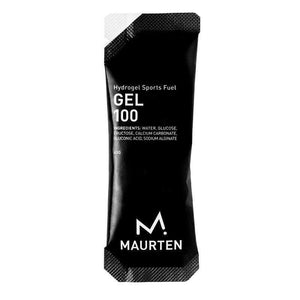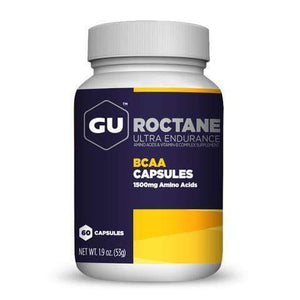It’s your choice - with our knowledge.

Product Insights
Discover more about the products in this article

ZERO Electrolyte Drink
Featured Products
Have you got a plan? Marathon Hydration & Nutrition Tips
It's that time of year you start thinking about choosing your target races, maybe awaiting the ballot results or getting the detail for your training plan for a spring marathon assault. Or you could already be there and have nailed your training plan, for this years autumn marathon but have you given much thought to your nutrition strategy? If not, you’re missing a key opportunity to improve your performance and recovery on race day. Getting your nutrition wrong worst case could derail your whole race.
So we have pulled together 5 Marathon Nutrition Tips
1) Hydrate Early and Often
Don’t wait until the morning of your race to start your hydration plan!
- In the build up (Taper) drink 2-4 litres daily in the 48-72 hours leading up to the big race. try adding electrolyte tabs or electrolyte drinks such as HIGH5 ZERO Electrolyte Drink into your plan to ensure your sodium \ electrolyte levels are well topped up.
- Before the race, on race morning, keep hydrated but use the opportunity to keep fuelled, by sipping 500ml of energy drink following breakfast you will keep your energy stores topped up during pre-race activities but make sure to give yourself plenty of time to flush any excess fluids. Stop drinking 1 hour to 45 minutes before race time.
- During the race, take advantage of aid stations so you don’t have to carry extra weight: by sipping water you will help prevent dehydration, taking small amounts at each aid station rather than waiting until you need it will keep you moving and performing better during your race.
2) Fuel Early and Often
Plan to take in calories (150 - 200 per hour) and fluids in small amounts, Sipping and nibbling helps your body make the most of the fuel you give it. Obviously you need to make you plan work for you, and a simple plan is easier to follow, try to eat or drink something every 20-30 minutes, however small it may be! A good marathon strategy is to take on fuel every 5 miles throughout the race starting at mile zero, then 5, 10, 15 and 20 miles.
Our Nutrition Calculator is a great tool to help you plan your fuelling! This handy tool allows you to create a list of how much nutrition you will need for a race, based on your predicted time, weight and gender. Once your list has been created, you can easily add products to your list, and then to your cart for a seemless fuelling experience.
An energy gel, such as Maurten Gel 100 a chew or two, a sip of energy drink, keeping a steady flow of nutrients and energy to your working muscles. (tip: set an alert on your watch to help keep you on track!) The “trickle feed” method will also reduce the likelihood of having GI issues on race day.
3) Train Your Nutrition
However you chose to fuel on race day, be sure to practice, practice, practice!
Race day is not the time to try anything new. Your nutrition plan should be sorted, even down to which flavours you know work well during long runs. It’s particularly important to find out how much fluid you can tolerate before you get that sloshing feeling in your stomach.
Practice your plan during weekly long runs leading up to your race, and adjust as needed. A good starting goal is to consume 150 / 200 calories per hour for runs longer than about 90 minutes. Remember, calories come in many shapes and sizes: gels, chews, bars, and not forgetting energy drinks. Mix up the flavours to find the ones you absolutely love! A treat on race day if you find the perfect flavour.
4) Protect Your Muscles
During prolonged, strenuous exercise (like marathons!) your body will start to break down its own muscles to supply amino acids for energy production.
To protect your muscles from breakdown and help kick start recovery, we recommend supplementing your supply of branched-chain amino acids (BCAAs), which are the most important amino acids for muscle repair and rebuilding. Not only that, BCAAs are metabolised directly by the muscles themselves, providing an additional energy source!
Tip from GU Energy: take four GU Roctane BCAA Capsules before and four BCAA Capsules after your race to minimise muscle breakdown, promote recovery, and help you avoid having to walk like the Tin Man after your race.
5) Don’t Wait Until the Last Minute
Finally and maybe the most important rule while it’s tempting to go for the all-you-can-eat pasta dinner the night before your race, this might not be the best strategy.
Chances are, you’ll end up overeating on foods you’re unaccustomed to digesting and regret it later. Feeling bloated on race morning is not a feeling we would recommend to anyone.
Instead, try upping your carbohydrate intake 2-3 days leading into your event, while also cutting back on fat and fiber. Along with your taper (you ARE tapering, right?), this strategy will effectively stock your muscle and liver glycogen stores (a.k.a., fuel tanks) without leaving you feeling bloated and uncomfortable the night before the race.
- Try to get 3-5 grams of carbohydrate per pound of bodyweight daily. For example, a 150 lb runner should target 450-750 grams daily for 2-3 days preceding the race.
- Trim the fat and aim for less than ½ gram per pound of body weight, or <75 g per day for our 150 lb runner.
- The day before, try to eat at lunch time, and plenty of fluids to wash it down. As with your race day nutrition plan, make sure whatever meal you choose to eat the night before is something you’re used to eating!
While we think it’s important to have a plan, we also know that everything doesn’t always go according to that plan on race day. You might not be able to find your favourite breakfast (if you can pack it and take it with you), you could lose a Gel in the chaos of the start, or even miss an aid station. So, if something goes awry, stay calm, smile, and remember that running is fun!
It’s your choice - with our knowledge.











































































































